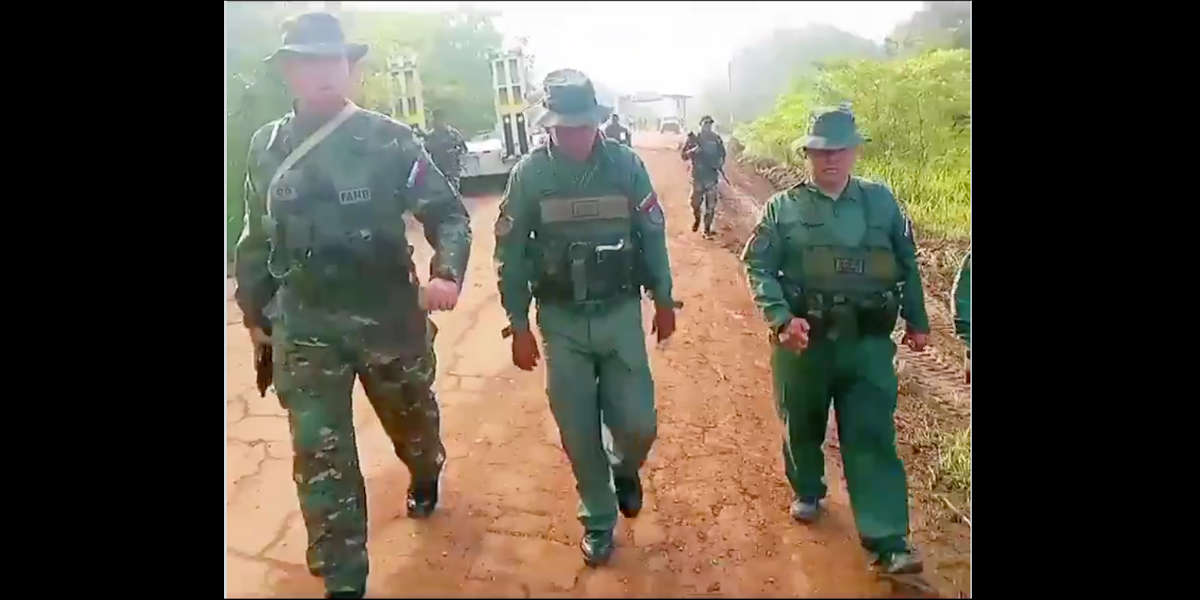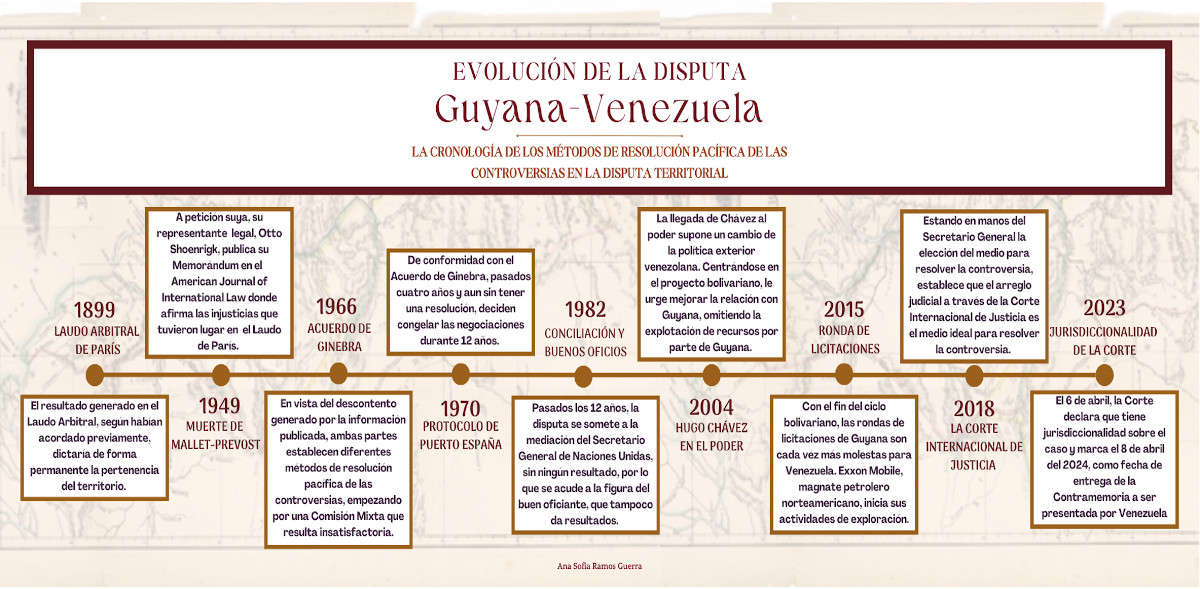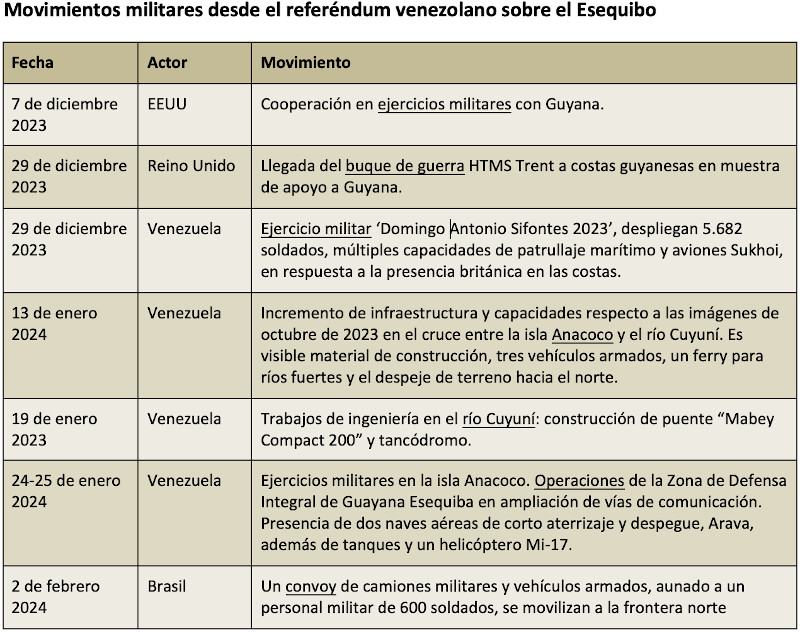In the picture
Venezuelan military of the Corps of Engineers carry out settlement works in Anacoco Island, disputed with Guyana [FANB] [FANB].
report SRA 2024 / [PDF version]
An armed confrontation is not foreseeable, but the escalation of tension offers the risk of unwanted incidents, by accident or miscalculation.
° Caracas has the discomfort of not recognizing the jurisdiction of the ICJ in the case and having to defend its position before that Court in response to the arguments of its neighbor.
° The referendum of December 2023, although of little effective value, highlighted the aggressive image of the Maduro regime, by deciding the annexation management assistant of the territory.
The historic dispute between Venezuela and Guyana over the Essequibo, a territory that accounts for two thirds of the latter country and whose neighbor claims as its own, has taken a qualitative leap in the last year. In April 2023, at Guyana's request, the International Court of Justice (ICJ) declared that it had jurisdiction over the case. The regime of Nicolás Maduro then became more assertive and called a referendum, of dubious representativeness, which in December endorsed the annexation management assistant of the disputed territory. Venezuela has mobilized troops on the border, while countries such as the United States, Great Britain and Brazil have made gestures of support for the defense of Guyana.
The dispute, which affects 160,000 km² of Guyana, is not merely territorial, but also involves a struggle for the mineral and energy resources it contains (Guyana is experiencing an oil boom thanks to the area maritime area adjacent to this coastline). Venezuela's historical claim dates back to colonial times, when it was still the Captaincy General of Venezuela and the British Empire began to expand on its own in what was then British Guyana. Tensions began in 1841, after Venezuela became independent, when British maps took for granted that the strip east of the Essequibo River was part of their colony.
Paris Award and agreement of Geneva
The Paris Arbitral Award of 1899 ceded a large part of the disputed territory to Guyana, as a British colony. Although the result was complied with by both parties for 63 years, the status became inconclusive after the death of the American lawyer who defended Venezuela in the Award, as evidence was made public that showed the bias of the jury in the arbitration award, pointing out that Judge Friedrich Martens had persuaded the court to rule in favor of the United Kingdom.
In 1966, when London was about to grant independence to the Cooperative Republic of Guyana, Venezuela and the United Kingdom signed the Genevaagreement , which recognized the existence of the dissent and expressed the commitment of both parties to the peaceful resolution of the dispute. The conversations held did not yield result and the case was left to the good offices of the United Nations University Secretary , who has repeatedly determined the judicial settlement, through the ICJ, as the ideal means to put an end to the dispute over the Essequibo.
The Arbitral Award of 1899 has conditioned the Venezuelan position regarding the legitimacy of the ICJ to resolve disputes, since it accuses that tribunal of "having a historically traumatic burden for the country". However, Venezuela has appeared before the Court to present its preliminary objections on the admissibility of the dispute raised by Guyana, which implies a tacit recognition of the jurisdiction of the body. The Venezuelan primary objections were rejected in the Court's order of April 6, 2023. April 8, 2024 is the deadline for Venezuela to defend its position on the merits of the case; if it does so, it will endorse the process.
Guyana has been steadfast in its defense of the 1899 Arbitral Award and in its rejection of political negotiations as a substitute for the ICJ's judicial pathway , whose mediation channel is also supported by the international community.



